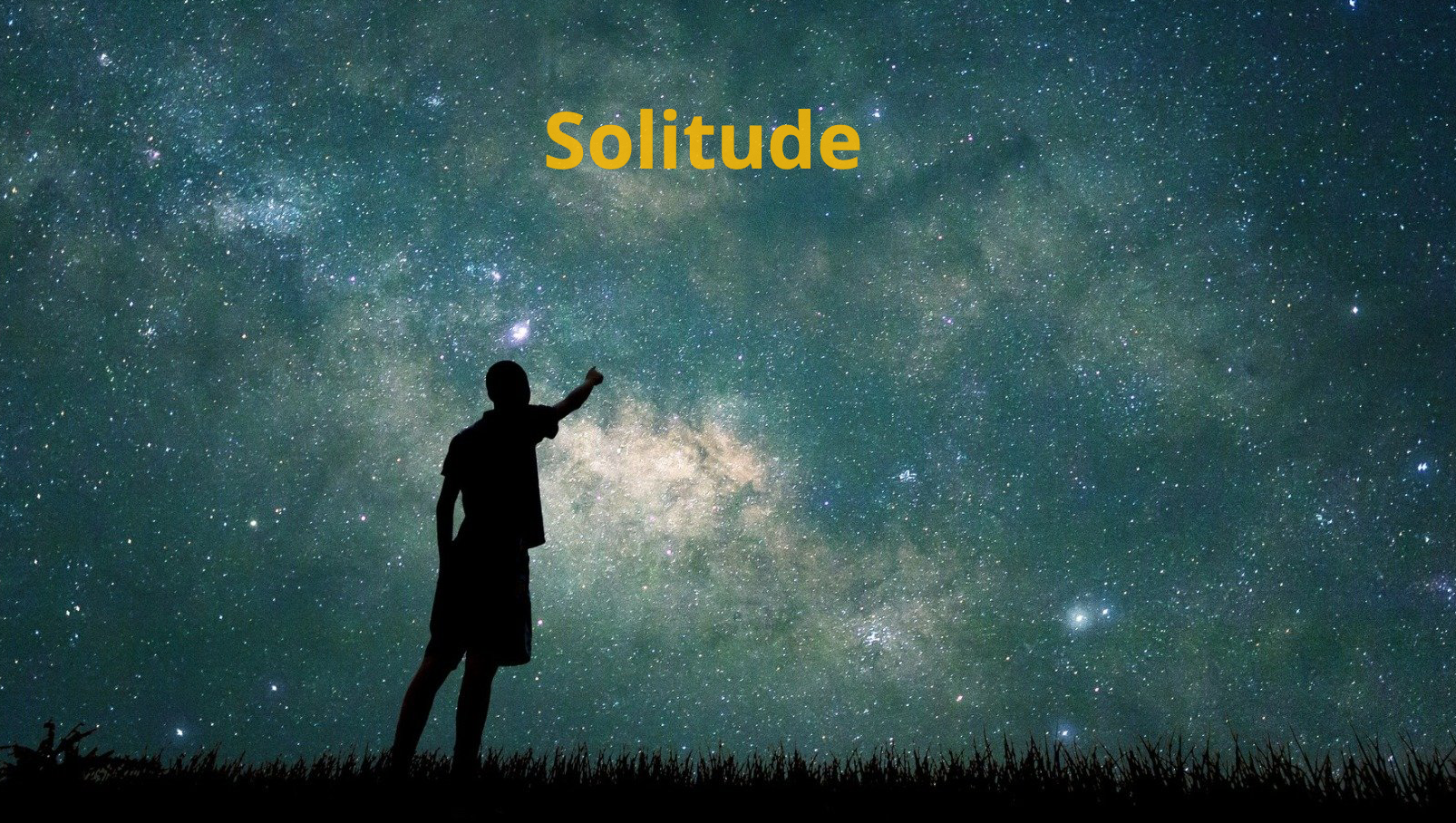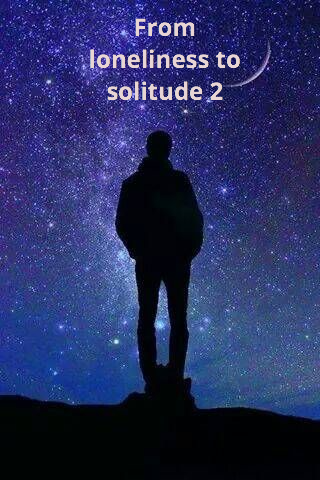The road from loneliness to solitude - a reflection by Fr. Simon
The current situation is forcing many people to push the boundaries of their experience of being alone or with only close family for company, foregoing the stimulation of being with others, at work or in social situations. This, particularly in light of the Prime Minister's statement on 23 March and the restrictions it places on us.
The experience of isolation can be a real source of anxiety for some. But our faith has always taught that greater self awareness, closeness to God and a sense of peace can be found during those times when we are alone, a state known as 'solitude'. (And yes, I know that some in family households might be saying 'if only!').
The word solitude is derived from the Latin 'solus', meaning alone. Throughout the ages, many men and women have followed Jesus' example by taking time to withdraw to remote places and discover the 'wellspring of salvation' within them without having to suffer the many distractions of daily life.
So, whilst many may fear loneliness, the good news is that if we are alone we do not have to be lonely. If we come to understand aloneness as solitude then that time can become creative and uplifting rather than upsetting and dispiriting.
Henri Nouwen was a Dutch priest and psychologist. If you are looking for spiritual reading during this enforced downtime, his books can be a real inspiration. A selection of them can be found in online bookshops and some in kindle form.
For Nouwen, loneliness is the craving for unity and wholeness which was lost when man became estranged from God and will only be regained when we come to share fully in the resurrection of Christ, when we come to be 'happy with God forever in the next world'. Nouwen taught that mental suffering often emanates from the false expectation that other people can take away that craving for unity when, in fact, though the company of others is wonderful and to be treasured, only in God can we find that peace for which our souls are ceaselessly searching. Essentially, he says, if we burden others with the responsibility to take away our loneliness, we are being unfair to them and creating the basis for a maelstrom of troubled relationships.
The American philosopher Henry David Thoreau wrote:
'When our life ceases to be inward and private, conversation generates into mere gossip. We rarely meet a man who can tell us any news which he has not read in a newspaper, or been told by his neighbour; and, for the most part, the only difference between us and our fellow is that he has seen the newspaper, or been out to tea, and we have not. In proportion, as our inward life fails, we go more constantly and desperately to the post office. You may depend on it, that the poor fellow who walks away with the greatest number of letters, proud of his extensive correspondence has not heard from himself this long while'
Thoreau was writing in the 19th century. Perhaps we can re-interpret his observations in the understanding that forever turning to the media, social media, FaceTime, email or telephone can be a sign that a person is unwilling to look within for the answers to life's deepest questions.
Schools are mostly closed now and many parents will be working hard to keep their children occupied and maintain a structure to their lives. Ironically, the word 'school' derives from the Latin for 'free time' and the Greek for 'leisure'. The idea being that only in keeping distractions at bay, keeping our time 'free', can we make discoveries that will change our lives.
A writer who shows a deep understanding of the human condition is Kahlil Gibran. In his book 'The Prophet', he gives advice to married people about how to be united and separate in appropriate ways. He suggests that within marriage there should be boundaries which allow for each partner to be alone, and that this time alone can build up and strengthen the bond of marriage. His words are often quoted at weddings:
Sing and dance together and be joyous,
but let each one of you be alone.
Even as the strings of a lute are alone
though they quiver with the same music.
Stand together, yet not too near together
For the pillars of the temple stand apart,
and the oak tree and the cypress
grow not in each other's shadow.
Nouwen's answer to those who do not want to burden others with the task of taking their loneliness away is to begin a road of conversion, the conversion of loneliness to solitude. Rather than run away from our debilitating loneliness he suggests that we turn it into fruitful solitude. For him, to live a spiritual life is to find the courage to enter into the desert of our loneliness, as Christ did, often before the most difficult moments of his life. And to turn that desert by gentle but persistent efforts into a garden of solitude. This, of course, requires both courage and a strong faith. He quotes a student of his saying
'When loneliness is haunting me with its possibility of being a threshold instead of a dead end, a new creation instead of a grave, a meeting place instead of an abyss, then time loses its desperate hold on me. Then I no longer have to live in a frenzy of activity, overwhelmed and afraid for the missed opportunity.'
Nouwen's advice is to 'stop pouring little bits of water on our dry and arid land. It doesn't help'. Instead, he says, in an echo of the gospel story of Our Lord's encounter with the woman at the well, we might 'reach deep within and find a living well of water'. Finding solitude allows us to live in the immediacy of the moment where 'every day, every act is an island, washed by time and space and with an island's completion'.
The Trappist monk, Thomas Merton, wrote:
'It is in deep solitude that I find the gentleness with which I can truly love my brothers. The more solitary I am, the more affection I have for them. It is pure affection and filled with reverence for the solitude of others'.
Merton's life teaches us that solitude does not separate us from our contemporaries but, instead, brings us into a deeper communion with them. His solitude taught him to love the humans racing around the world and to see anew the great mystery of the Incarnation, that our God became one of us. This realisation of the incarnation, to Merton, was 'like news that one holds the winning ticket in a cosmic sweepstake'.
So what we are encouraged to seek by Nouwen, Thoreau, Merton and other enlightened souls is a 'solitude of the heart'. An approach to being alone which brings creativity to marriage, friendship and community life. An understanding of solitude which changes relationships choked by a clinging neediness into life-giving encounters. The state of solitude enables us to strengthen each other through mutual respect, by careful consideration of each other's individuality, by keeping a reverent distance from each other's need for privacy (mirrored, perhaps, in the appropriate physical distance we are asked to give to others in these challenging times).
Ultimately, it is in solitude that we come to determine more fully the presence of He who graced us with existence, who accompanies us on every journey, often unrecognised, as on the road to Emmaus. In solitude we come to appreciate anew the God who calls us beyond the limits of our human togetherness to a new communion. In solitude we become more aware of how He draws together all our friends and loved ones, yes even in these times of isolation and anxiety, and offers us the freedom to love one another, because He loved us first (1 John 4:19).
Let us take this opportunity, then, to rediscover the gift of solitude. The hard faced expressions of those who shop determinedly and often, the actions of those who refuse to obey limitation of movement are perhaps a reflection of the fear and loneliness they feel inside. The greatest teaching is by example. Let us give the best of examples to a world which is in so much need of soothing. Let us give that example by coming closer to the Lord in the freedom of solitude.
Learning to weep, learning to keep vigil, learning to wait for the dawn. Perhaps this is what it means to be human.


